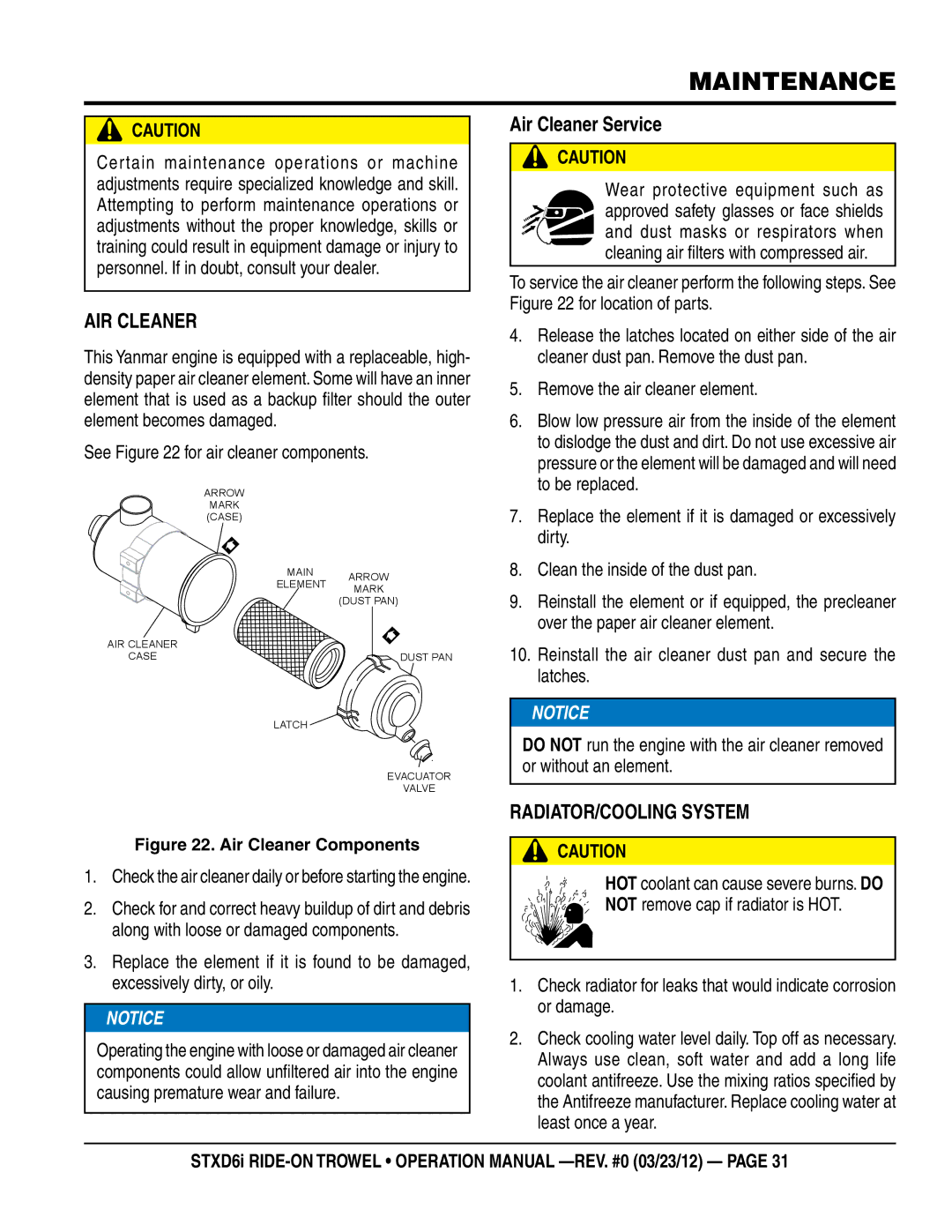
maintenance
![]() CAUTION
CAUTION
Certain maintenance operations or machine adjustments require specialized knowledge and skill. Attempting to perform maintenance operations or adjustments without the proper knowledge, skills or training could result in equipment damage or injury to personnel. If in doubt, consult your dealer.
Air Cleaner
This Yanmar engine is equipped with a replaceable, high- density paper air cleaner element. Some will have an inner element that is used as a backup filter should the outer element becomes damaged.
See Figure 22 for air cleaner components.
ARROW
MARK
(CASE)
MAIN ARROW
ELEMENT MARK (DUST PAN)
Air Cleaner Service
![]() CAUTION
CAUTION
Wear protective equipment such as approved safety glasses or face shields and dust masks or respirators when cleaning air filters with compressed air.
To service the air cleaner perform the following steps. See Figure 22 for location of parts.
4. | Release the latches located on either side of the air |
| cleaner dust pan. Remove the dust pan. |
5. | Remove the air cleaner element. |
6. | Blow low pressure air from the inside of the element |
| to dislodge the dust and dirt. Do not use excessive air |
| pressure or the element will be damaged and will need |
| to be replaced. |
7. | Replace the element if it is damaged or excessively |
| dirty. |
8. | Clean the inside of the dust pan. |
9. | Reinstall the element or if equipped, the precleaner |
AIR CLEANER
CASE
LATCH ![]()
DUST PAN
EVACUATOR
VALVE
over the paper air cleaner element. |
10. Reinstall the air cleaner dust pan and secure the |
latches. |
![]() NOTICE
NOTICE
DO NOT run the engine with the air cleaner removed or without an element.
Figure 22. Air Cleaner Components
1.Check the air cleaner daily or before starting the engine.
2.Check for and correct heavy buildup of dirt and debris along with loose or damaged components.
3.Replace the element if it is found to be damaged, excessively dirty, or oily.
![]()
![]() NOTICE
NOTICE
Operating the engine with loose or damaged air cleaner components could allow unfiltered air into the engine causing premature wear and failure.
Radiator/Cooling System
![]() CAUTION
CAUTION
HOT coolant can cause severe burns. DO
NOT remove cap if radiator is HOT.
1.Check radiator for leaks that would indicate corrosion or damage.
2.Check cooling water level daily. Top off as necessary. Always use clean, soft water and add a long life coolant antifreeze. Use the mixing ratios specified by the Antifreeze manufacturer. Replace cooling water at least once a year.
STXD6i
